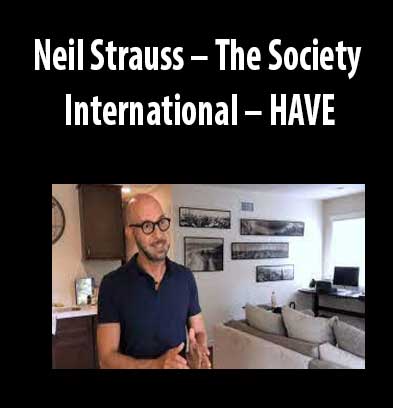Phil Zimbardo on the Stanford Prison Experiment, Evil and Heroism
Description
Phil Zimbardo on the Stanford Prison Experiment Evil and Heroism review, Phil Zimbardo on the Stanford Prison Experiment Evil and Heroism download, Phil Zimbardo on the Stanford Prison Experiment Evil and Heroism free
Phil Zimbardo on the Stanford Prison Experiment, Evil and Heroism
Phil Zimbardo on the Stanford Prison Experiment, Evil and Heroism by Philip Zimbardo
In 1971, Dr. Philip Zimbardo led the notorious Stanford Prison Experiment in order to answer the question, “What happens when you put good people in an evil place?” In this interview with Victor Yalom, Zimbardo speaks in-depth on the study, its lessons, and its relationship to Abu Ghraib decades later.
As clinicians, we seek to support individual change—but to what extent are we influenced by the institutions that surround us? Can we ignore the role of systems in our work with clients, or does treatment involve addressing one’s environment as well? In this video, Dr. Philip Zimbardo illuminates the longstanding nature vs. nurture debate in a deep discussion about evil, heroism, and the psychological conditions that impact which way we turn. Here, the former APA president and leader of the infamous Stanford Prison Experiment goes back decades to tell us the story of its participants, the ways in which we internalize the roles given to us, and the compelling ways these factors are still playing out today.
Over the course of his long career, Zimbardo has tackled the question of morality, seeking to understand the power of situations over individuals that lead to corruption and compliance. The 1971 Stanford Prison Experiment was the most notorious of his studies, and here Zimbardo describes its methodology, goals, unraveling, and abrupt cancellation after only six days of its planned two-week run. You’ll watch him reflect on the harsh conditions leading a college-aged group of “otherwise good people” to turn against each other, and hear about his ongoing regrets comingled with important lessons about human nature.
Zimbardo discusses issues such as compliance (what causes us to look the other way), learned helplessness (through the gradual acclimation to fearful situations), and “the illusion of personal invulnerability”—the idea that we would make better choices in similar situations. He goes on to discuss his work as an analyst during the Abu Ghraib trials, bringing his expertise to bear on the psychological processes at work among the guards.
Ultimately, though, Zimbardo’s objective is hopeful: to uncover what inspires heroic acts and promote the development of our collective moral compass. If you’re interested in understanding how psychological and systemic forces create good or evil, you won’t want to miss this compelling interview.
In Depth
In 1971, Dr. Philip Zimbardo led the notorious Stanford Prison Experiment in order to answer the question, “What happens when you put good people in an evil place?” This question has served as a throughline over the course of Zimbardo’s long career; in this interview with Victor Yalom, the Stanford emeritus professor of psychology speaks in-depth on the study, its lessons, and its relationship to Abu Ghraib decades later.
Over the course of the interview, Zimbardo describes the arc of the controversial study, with lively storytelling that fascinates even as it counfounds. He goes on to outline the rise and fall of the experiment, the participants’ parents ultimate compliance during its run, and his own internalization of the “prison super” role (only made apparent to him upon his then-girlfriend’s threat to end their relationship). He then extrapolates his findings to the more recent Abu Ghraib trials, where he was involved in examining the systemic torture proliferating among the unsupervised guards.
Zimbardo’s discoveries remain relevant in the age of widespread police brutality charges, an increasingly divided government, and international political strife. You’ll find many compelling ideas to consider from his work, so be sure to take a look at this ever-timely interview.
By watching this video, you will:
- Learn about the guiding principles and methodology of the Stanford Prison Experiment.
- Understand Zimbardo’s findings from the study, including thoughts on corruption and compliance.
- Learn more about what constitutes “heroism,” according to Zimbardo’s more recent research.
Specs
Length of video: 1:36:00
English subtitles available
Bios
Philip G. Zimbardo, PhD, is a psychologist and a professor emeritus at Stanford University, where he taught for 50 years, starting in 1968. He continues to conduct research at Stanford and teach at the former Pacific Graduate School of Psychology, now Palo Alto University. He is also president of the Heroic Imagination Project, which teaches people how to overcome the natural human tendency to watch and wait in moments of crisis.
Zimbardo is probably best known for his 1971 Stanford prison experiment, which demonstrated the power of social situations to influence people’s behavior. He has authored more than 300 professional articles, chapters and books representing his broad and varied interests in topics ranging from exploratory and sexual behavior in rats to persuasion, dissonance, hypnosis, cults, shyness, time perspective, prisons and madness. His books and textbooks for college students include Psychology and Life, The Lucifer Effect: Understanding How Good People Turn Evil and The Time Paradox.
Our Policies
A. Product Quality
We will provide GOOD quality of courses fast. If any issue, email: [email protected].
We sure that your problem will be support as soon as possible.
B. Digital Shipping Proceess
After your payment, we will review your payment, Then, we will send you PCLOUD LINK OF COURSES through email in 3 – 8 hours. If any issue, we will inform you as soon as possible.









Reviews
There are no reviews yet.